Can I Scratch My Tattoo After It’s Healed?
Controlling yourself from scratching a freaking itchy tattoo can be challenging as hell. But should you just scratch the tattoo just because you can’t control yourself? Can you scratch a tattoo after it’s healed?
The answer is yes and no. Scratching a healed tattoo isn’t as dangerous as scratching a new one. Still, you can’t use your nails to scratch a tattoo, even if it’s healed. You can simply use an open palm and provide gentle pressure on the skin to find comfort. However, there are alternatives to scratching (e.g you can take a low-temperature shower as it helps reduce itchiness) to get rid of an itchy tattoo.
Keep reading the piece to know what scratching does to your tattoo, why you may have an itchy tattoo, and how to ease the irritation. Let’s get started!
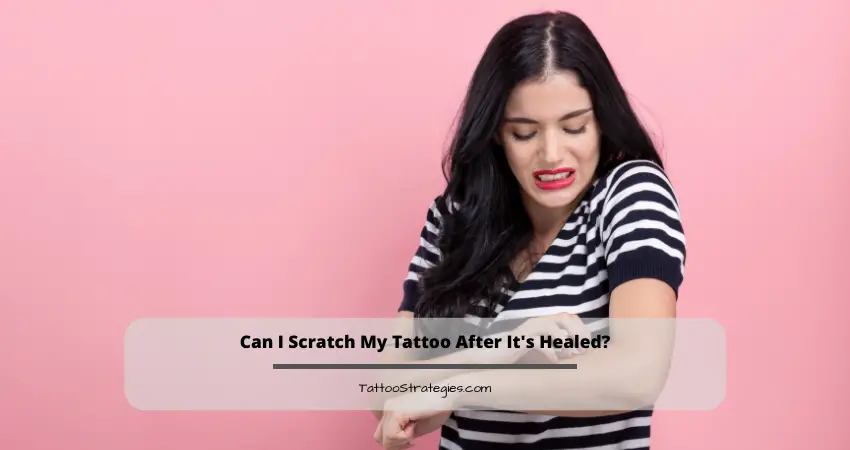
Does Scratching Ruin My Tattoo?
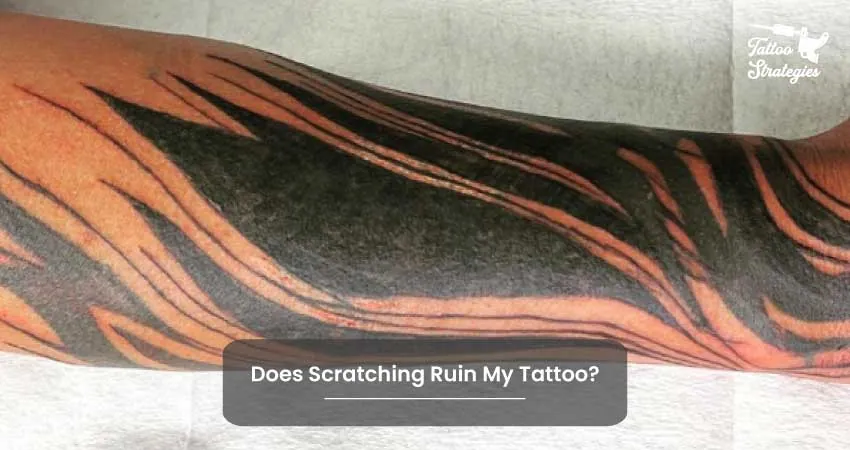
Well, there’s a chance for an intense scratch to mess up your tattoo in some ways.
Primarily, scratching will make the itch more intense and cause you to have a nasty infection. In the worst-case scenario, you’ll have scars on the art or destroyed body art. When your nails scrape the skin’s top layer or scab it off, the skin is forcefully removed. But you should allow the dead skin cells to naturally fall off.
Scratching can remove your tattoo ink as well. I’ve witnessed people having a hazy and lightened patch on the scratched areas.
Another key reason you should never use your fingernails against the tattooed skin is that the nails can be a host of germs and microorganisms. It enhances the risk of having an infection that you’ll never want to experience.
Some common signs of tattoo infection are oozing at the wound site, redness, and increased itching. Consult your doctor as soon as you suspect an infection. People even lose limbs if the infection is extreme.
So, here’s a listing of the worst consequences you may face after scratching a healed tattoo.
- Introduction of germs, bacteria, and microorganisms to the tattoo through nails.
- Scratching healed tattoo increases the overall cost of the touch-up of your tattoo.
- High chance of infection development.
Why Is My Tattoo Itchy? Is It Normal for A Tattoo to Itch?
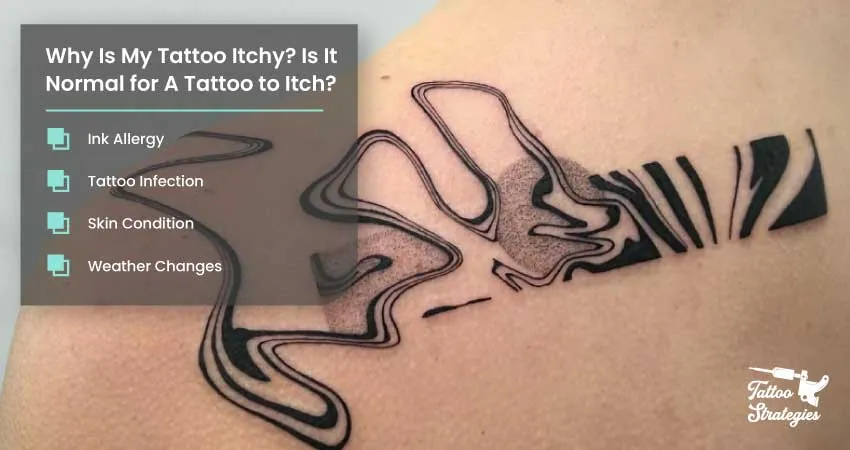
Even if you’ve passed the first three weeks of tattooing, meaning the healing period is closed, you may still have an itchy tattoo. Why? And, is it normal?
Well, the most common issue is allergy. Your skin might be sensitive, or you may have an ink allergy. But it’s only normal to have an itchy tattoo when your tattoo is new. A healed tattoo shouldn’t be so freaking itchy that you want to scratch it.
Let’s go through the most common reasons someone experiences an itchy tattoo.
Ink Allergy
Ink allergy is a common reason people have raised itchy and painful tattoos. This is why you must choose the right ink and get your tattoo done by an expert artist. Below are some ways how you get an ink allergy.
- Contaminated Ink: Research showed that 10% (or more) of unpacked ink bottles already carry harmful bacteria. Unfortunately, ink can freely enter the marketplace without ingredient-check or any regulation as it’s a cosmetic product. Thus, you can’t be sure if the ink is 100% safe.
Sometimes, the ink contains toxic metals and plastics. More specifically, green, red, yellow, and blue ink are the most problematic ones. These pigments are highly allergenic, and they often contain harmful ingredients.
- You’re allergic to ink: Although your tattoo artist uses high-quality ink and 100% hygiene at the studio, you can still experience allergic reactions just because you’re generally allergic to ink.
- Sunlight: Bright lights, especially sunlight, can make your journey with the tattoo worse. Although photosensitivity shouldn’t affect a healed tattoo, still, there are chances of having ink allergies when your tattoo is exposed to sunlight.
The results might be raised, itchy tattoos, and sometimes you might see the formation of bumps and rashing. Red, yellow, and blue inks are the biggest culprits because they react most with sunlight.
The ingredients like aluminum, carbon, lead chromate, manganese, zinc oxide, and cobalt illuminate cause allergic reactions. And besides the toxic metals and plastics, many inks come with dyes used to create car prints or paints.
These facts enhance the chance of getting an ink allergy, unfortunately.
Tattoo Infection
Although you’re seeing that your tattoo is healed, tattoo infection might show up even after three weeks of getting the tattoo. The most common reasons for getting a tattoo infection are:
- Contaminated tattooing environment
- Using petroleum-based products on the tattoo
- Wearing tight clothes that stick to your tattoo
- Improper aftercare routine
- The inefficiency of the tattoo artist
- Contaminated tattooing tools
Apart from itchy and raised skin, other symptoms of infection are increased pain levels, oozing, rashing, swelling, etc. You must seek medical attention as soon as you notice such symptoms.
Skin Condition
Sometimes, the blame for having an itchy tattoo is on your skin. Chances are you have dry or sensitive skin, or you may have dermatitis and eczema. To avoid any unwanted situation after getting a tattoo, you should see a dermatologist in the first place.
Weather Changes
Yes, even season changes can affect your healed tattoo. Humidity rise or temperature fluctuation can cause an itchy and raised tattoo.
It’s pretty common to experience swelling of the skin in summertime. You may notice your skin stretch a bit and irritate as well. And, guess what? Scratching a tattoo at this time can cause further damage to it.
On the other hand, your skin may dry out or irritate in winter. In extreme cases, you may notice rashes and skin peeling. This is why moisturizing your tattoo is a must in cold seasons.
When Is It Okay to Scratch Your Tattoo?
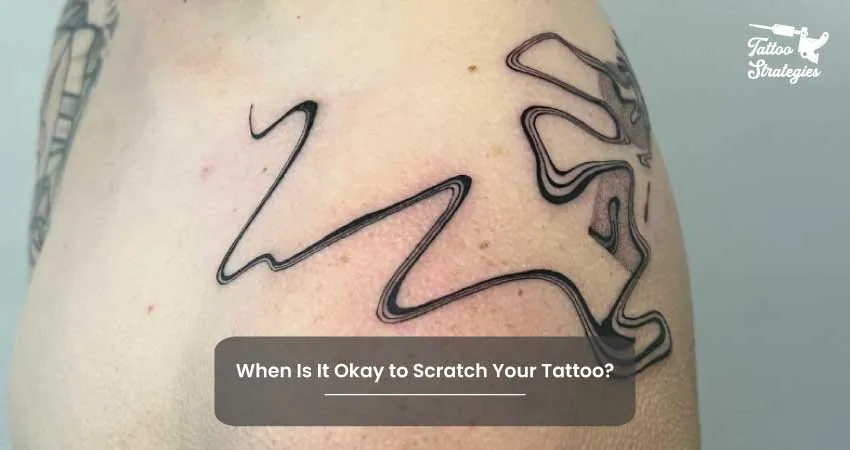
So, when is it okay to scratch your tattoo? Can you even scratch a tattoo?
You can scratch the tattoo a bit once it’s fully healed, but you can never go into crazy mode and keep scratching it until you’re satisfied. It’s best to avoid using nails while dealing with an itchy tattoo, no matter whether your tattoo is new or old.
Now, you may ask, how on earth can I scratch a tattoo without using nails?
Well, you can gently slap on the tattoo using an open palm. Some people find it helpful. But you must be extremely gentle and not slap the skin with your fingers.
Be very careful while your tattoo is in the healing process. You must not scratch the tattoo until it’s fully healed. The healing process can take more or less 4-8 weeks, so be patient throughout the time.
What to Do If I Accidentally Scratched the Tattoo?
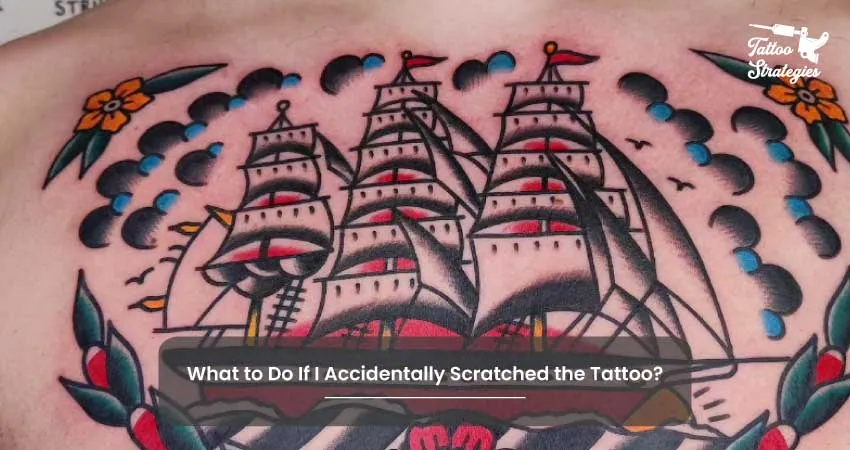
If you accidentally scratch your tattoo, first inspect the tattoo to see whether you’ve peeled off the tattoo or removed any of the scabs. If there’s any visual damage to the skin, such as redness, oozing, removed scabs, or bleeding, go through the steps below.
- Mix antibacterial in lukewarm water, then clean the wound. Using a non-comedogenic soap will work as well. This step will make sure that the germs don’t spread anymore.
- Grab an approved tattoo ointment and apply a thin layer to your tattoo. This will help your tattoo to heal faster and hydrate your skin. Ensure your nails, fingers, and hands are clean while applying something to the tattoo.
- See how the tattooed skin reacts in the following days. If the skin becomes okay normally, then the chances of having permanent damage are less. Otherwise, you should consult a medical professional if you experience further discomfort.
The Best Ways to Ease The Irritation
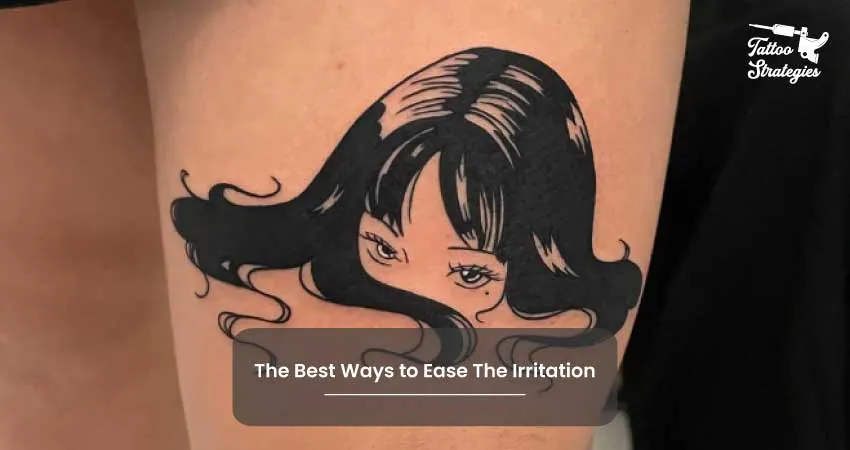
By now, you know why you tend to scratch your tattoo, what happens if you do so, and more. Let’s see how you should deal with an itchy tattoo or whether there’s a better way to reduce the itchiness than scratching the tattoo.
- Gently pat your tattoo; it helps reduce the intensity of the itchiness.
- Keep a flat palm over the itchy tattoo. Don’t move the palm or do anything; just hold it until the itchiness is gone.
- Cover the tattoo with a thick material. Then, gently roll over the fabric using your hand. It’s still scratching without scratching the area or causing an infection on the tattoo.
- Try to take a quick, low-temperature shower. It’s helpful to ease the irritation from itching. However, it’s not a good idea to submerge the tattoo in water. It will provide excessive moisture to the area.
How to Prevent an Itchy Tattoo
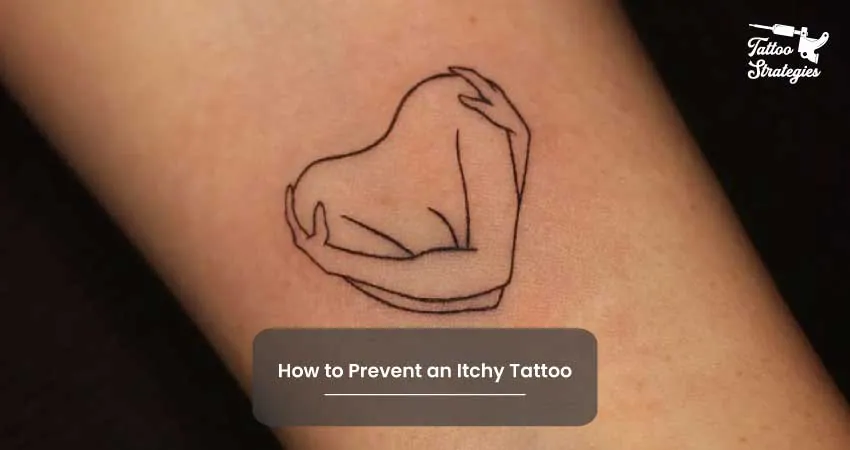
Here are some preventative steps to avoid an itchy tattoo from the beginning.
- Cleanse: It’s crucial to keep the inked area clean. But make sure you don’t overdo it. Excessive moisture can even make things worse. And use non-scented, antimicrobial soaps to clean the skin.
- Moisturize: After cleaning and pat-drying the tattoo, it’s a must to use a suitable lotion or ointment on the tattoed area. Choose an ointment rich in hydrating ingredients, so it eases dryness and maintains the skin’s moisture.
- Hydrate: It’s important to drink plenty of water and eat healthy fruits & veggies to keep your skin hydrated from the inside out.
Take Away
And this was all about today’s discussion. We hope the article helped you get a crystal clear idea about whether you can scratch your tattoo after it’s healed.
There are ways to scratch a tattoo (of course, not overdoing it) without spreading germs. If you can follow the instructions, it’s okay to scratch a healed tattoo and find comfort. Always keep ‘hygiene’ at the top of your priority list.
